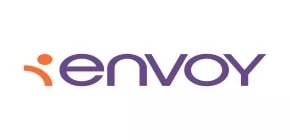Overview
The U.S. Supreme Court has ruled that individuals who entered the U.S. without permission cannot obtain status as permanent residents from within the U.S. simply because they are in the Temporary Protected Status (TPS) program.
In a unanimous decision on June 7, 2021, the Supreme Court held that a grant of Temporary Protected Status (TPS) is not an admission into the U.S. to apply for adjustment of status and lawful permanent residency. The court justices reached their decision based on the text in Section 1255 of the Immigration and Nationality Act (INA), which states that eligibility for lawful permanent residence requires lawful entry into the country at the discretion of an immigration officer. The court held that federal law only allows individuals to apply for a green card and LPR status if they are legally admitted into the U.S.
Background
The TPS program allows individuals to live and work temporarily in the U.S. on account of unsafe conditions in their home countries, such as armed conflicts and natural disasters. The TPS program grants individuals work authorization on a temporary, nonimmigrant basis.
In a unanimous decision, the Supreme Court ruled against Salvadoran nationals Jose Sanchez and Sonia Gonzalez in Sanchez v. Mayorkas. Sanchez entered the U.S. without permission, later received a grant and extensions of TPS, and applied for adjustment of status to lawful permanent residency following sponsorship by an employer. Previously, the U.S. Court of Appeals for the Third Circuit also ruled against Sanchez and Gonzalez, concluding that the petitioners were ineligible for LPR status because they had not been inspected and admitted to the U.S. Their grant and extensions of TPS did not cure that deficiency.
Looking Ahead
The recent ruling may impact individuals in the TPS program. The ruling also follows a recent extension of TPS protection to Burmese nationals and Haitian nationals.
Originally published 9 June 2021
The content of this article is intended to provide a general guide to the subject matter. Specialist advice should be sought about your specific circumstances.


